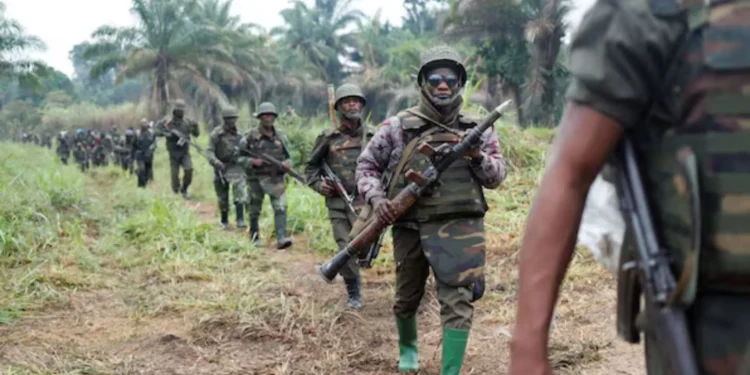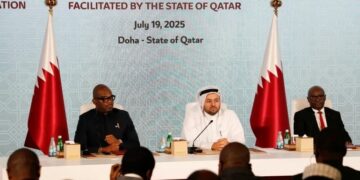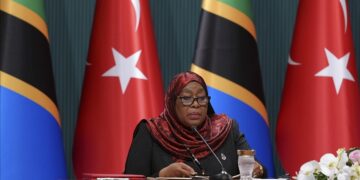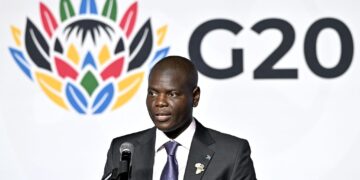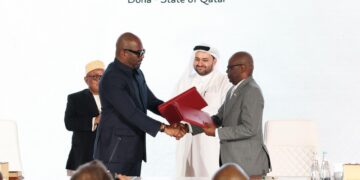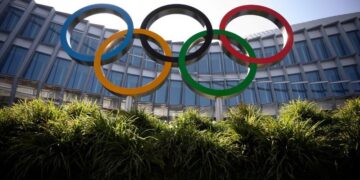The security crisis in the eastern Democratic Republic of the Congo (DRC) has prompted two regional blocs, the East African Community (EAC) and the Southern African Development Community (SADC), to appoint three former African leaders as facilitators of a new mediation process. The former President of Kenya, Uhuru Kenyatta, former President of Nigeria, Olusegun Obasanjo, and former Prime Minister of Ethiopia, Hailemariam Desalegn, have been entrusted with steering the joint peace initiative, according to a statement issued late Monday.
The initiative follows a high-level summit on 8 February, where the EAC and SADC proposed the integration of the Nairobi Process—an EAC-led peace framework spearheaded by Kenyatta—with the Luanda Process, a separate mechanism established by the African Union and facilitated by Angolan President João Lourenço. The move aims to consolidate peace efforts in the region following a series of setbacks faced by both frameworks.
The Nairobi Process, which has been a focal point for diplomatic engagement in the region, has reportedly reached a deadlock, as stated by Kenyatta’s spokesperson, Kanze Dena. Meanwhile, a summit under the Luanda Process, scheduled for December 2024, was unexpectedly cancelled at the last minute, raising concerns about the efficacy of current peace efforts. Against this backdrop, the appointment of experienced African statesmen signals a renewed attempt to address the escalating conflict in the eastern DRC.
The urgency of the situation has been underscored by the continued advances of the March 23 Movement (M23), a rebel group that has taken control of several strategic locations in the DRC, including the provincial capitals of Goma and Bukavu in North and South Kivu, respectively. In light of these developments, the EAC and SADC have urged M23 to cease hostilities and abide by an immediate ceasefire. A ministerial meeting is set to take place on 28 February to discuss further steps in the mediation process.
The eastern DRC, a region endowed with abundant natural resources such as coltan, tin, tantalum, and gold, has long been a battleground for various armed groups seeking control over lucrative mining operations. The ongoing violence has exacerbated the humanitarian crisis, forcing over 500,000 people in North Kivu alone to flee their homes in January. Furthermore, the United Nations High Commissioner for Refugees (UNHCR) reported that more than 400,000 Congolese, predominantly women and children, have sought international protection in neighbouring Burundi since February.
As regional and international actors rally to stabilise the situation, the newly appointed mediators face the daunting task of reconciling divergent interests and fostering a sustainable peace agreement. The upcoming ministerial meeting will serve as a crucial moment for assessing the feasibility of merging the Nairobi and Luanda peace processes into a unified framework capable of delivering lasting stability in the DRC.
For further details on the ongoing crisis and peace efforts, visit EAC Official Website and SADC Official Portal.


